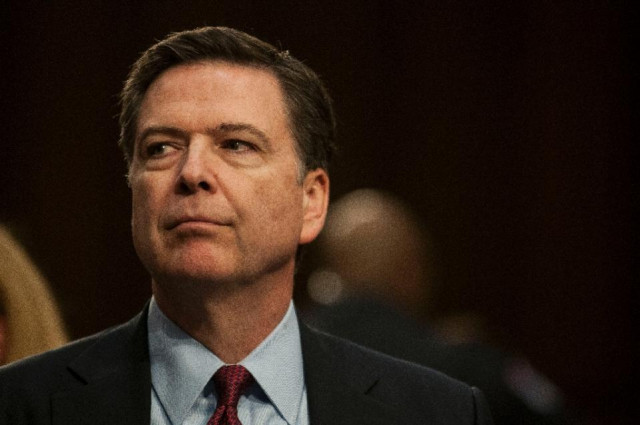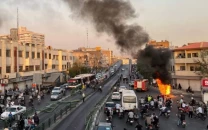PHOTO: AP
CHICAGO: A professor at a US Christian college who courted controversy after donning a hijab in solidarity with Muslims has agreed to leave her tenured position.
Larycia Hawkins was placed on administrative leave from Wheaton College in December after posting a picture of herself wearing a hijab on Facebook.
US professor suspended for saying Muslims, Christians worship ‘same God’
Hawkins said she was standing “in religious solidarity with Muslims because they, like me, a Christian, are people of the book.”
Her statement came amid a swell of Islamophobia in the wake of attacks in Paris and San Bernardino, California.
The school faced a backlash in which it was accused of bigotry and curtailing academic freedom.
Administrators at the suburban Chicago evangelical college said the problem was not the fact that Hawkins donned a hijab, but that she wrote “we worship the same God.”
US college moves to fire professor who said Muslims, Christians worship same God
The idea that Christians and Muslims worship the same God is a direct contradiction of the core of the college’s statement of faith, which affirms that salvation is achieved through Christ alone.
Faculty and staff members are expected to commit to “accept and model” the college’s statement of faith with “integrity, compassion and theological clarity,” Wheaton said in a statement.
While Hawkins received a groundswell of support that included demonstrations on campus, some Muslims also expressed unease at her assertions that they share the same God.
Some also criticised her very act of wearing a hijab.
Trump’s anti-Muslim remarks ‘divisive, stupid and wrong’: British PM
After initiating a termination process in January, the college and Hawkins said in a joint statement Monday that they had “found a mutual place of resolution and reconciliation.”
The statement said the two parties reached “a confidential agreement under which they will part ways.”




















Why!!! What happened to freedom of expression.Recommend7
@Syed:
Same thing that happened to “Neerja” in Pakistan.Recommend8
Considering that it was a Christian college funded by private donors, they have a right to control what they teach. Thefore all the media hype and twitter self promoters don’t have a leg to stand on.
Just try teaching evolution at any Pakistani madrassah without being blamed for Blasphemy.Recommend9
It means… a US Madrassa (religious school) has barred one of its teacher to teach because she is not following Madrassa’s policy. Every Madrassa has the same right. Then what is the hype? If its good in US then why not here…… and if it is objectionable here than why not in US?Recommend6
Abide
If you really believe that religious tolerance is the same in Pakistan and US, then try preaching Christianity in Pakistan. You will not be alive for very long.Recommend1
@Abid:
There’s a huge difference. The disagreement with the college stemmed purely from their religious views on the concept of God and whether muslims and christians worship the same God. Mudrassahs preaching islamic concepts, debating their interpretation etc. would not be a problem to anyone. If they preach violence, that would be prohibited.Recommend
In other words, the college and its rich donors came up with an offer that could not be refused.Recommend